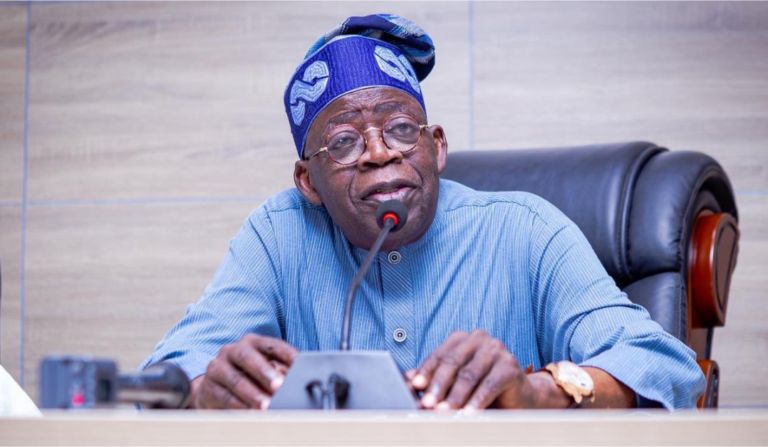At nearly all levels of governance, many developmental initiatives have either turned into white elephant projects or been completely abandoned due to the declining purchasing power of annual budgetary allocations. Government officials often boast about the billions and trillions of naira ‘spent’ on various projects, yet the reality on the ground tells a different story.
While several factors contribute to project abandonment, one of the most critical is the rapidly diminishing real value of budgetary provisions. The hyperinflationary trend in Nigeria—triggered by the removal of fuel subsidies and the full floatation of the naira, leading to its sharp devaluation—has made project planning and execution increasingly difficult.
Budgetary Instability and ‘Money Illusion’
A distorted budget cycle, now entrenched under the Tinubu administration, has further compounded the uncertainty created by ‘money illusion.’ Instead of adhering to the January-to-December fiscal cycle, budgets are becoming unpredictable, resulting in multiple project reviews, cost escalations, and indefinite rollovers into successive budget years. Many of these projects ultimately remain unfinished.
Beyond political rhetoric, a crucial question remains: does the government truly have as much money as it claims? If trillions of naira are available for national programs, why does the government continue to seek loans globally? Why are new taxes, duties, and levies being imposed on previously free public goods and services?
As inflation surges and purchasing power diminishes, the government has responded by aggressively increasing tax rates and introducing new levies. For example, in the proposed tax bill before the National Assembly, the Value Added Tax (VAT) rate is set to rise from 7.5% to 10%. Since VAT is a consumption tax, this increase directly burdens the average consumer, further straining household budgets.
CBN’s Misplaced Priorities and Monetary Policy
The ‘money illusion’ has also influenced the Central Bank of Nigeria’s (CBN) approach to addressing inflation. The apex bank has largely viewed the crisis as a monetary issue—assuming that too much money is chasing too few goods. However, Nigeria’s inflation is predominantly cost-push, driven by rising production costs, including imported inflation.
Operating under this assumption, the CBN has adopted a tight monetary stance, raising the Monetary Policy Rate (MPR) from 18% in mid-2023 to a record-high 27.5% by the end of 2024—an almost 10% increase in just 18 months. Additionally, the Cash Reserve Ratio (CRR) has been raised to drain liquidity from commercial banks, reducing their ability to provide credit. Consequently, borrowing costs have skyrocketed, making loans inaccessible to many businesses, particularly Small and Medium Enterprises (SMEs).
Rather than prioritizing real-sector growth, the CBN has focused on issuing bonds and Treasury Bills at attractive rates, drawing local and foreign portfolio investors (FPIs). However, this influx of ‘hot money’ has only fueled macroeconomic volatility, with investors quickly moving funds in and out of the country for short-term gains.
Rising Government Revenues, Shrinking Citizen Wealth
Beyond the CBN, various government agencies have followed suit, imposing or increasing service charges to boost revenue. Institutions like the Nigeria Customs Service (NCS), Nigeria Immigration Service (NIS), and Nigerian Ports Authority (NPA) have all exceeded their revenue targets, yet these earnings have not translated into better public welfare. Instead, the rising cost of government services has only made life more difficult for citizens.
President Tinubu recently cited unexpected revenue gains from these agencies as justification for revising the 2025 Appropriation Bill midway through the legislative process. This move suggests a belief that simply budgeting larger sums equates to better economic outcomes. But where is the tangible impact of previous budgets?
Addressing Inflation and Purchasing Power Decline
State governors, too, must recognize that their ‘fat’ FAAC allocations mean little in real terms when inflation erodes their value. Rather than celebrating increased revenue figures, the federal government must focus on addressing the root causes of declining purchasing power.
For example, despite the recent rebasing of the Consumer Price Index (CPI), which lowered the official inflation rate from 34.8% at the end of 2024 to 24.48% in January 2025, the reality remains grim. The rebasing was merely a statistical adjustment by the National Bureau of Statistics (NBS) and does not reflect an actual reduction in the cost of living.
Even at 24.48%, Nigeria’s inflation rate remains significantly higher than the 5% sub-Saharan Africa average reported in 2024. In advanced economies like the UK and the U.S., inflation rarely exceeds 3%.
The Way Forward: Moving Beyond Illusions
Ultimately, tackling the ‘money illusion’ challenge requires a fundamental shift in economic policy. The current state of the Nigerian economy is largely a result of policy-induced distortions—whether intentional or not.
To drive real economic progress, the government must:
- Implement structural reforms that promote production rather than excessive reliance on imports.
- Revamp monetary policy to support the real sector and make credit more accessible to businesses.
- Prioritize transparency and accountability in budgeting to ensure funds are used effectively.
- Curb excessive taxation that places an undue burden on citizens and businesses.
Nigeria must move beyond the illusion of abundant wealth and focus on policies that foster sustainable growth. It’s time for a reality check.


